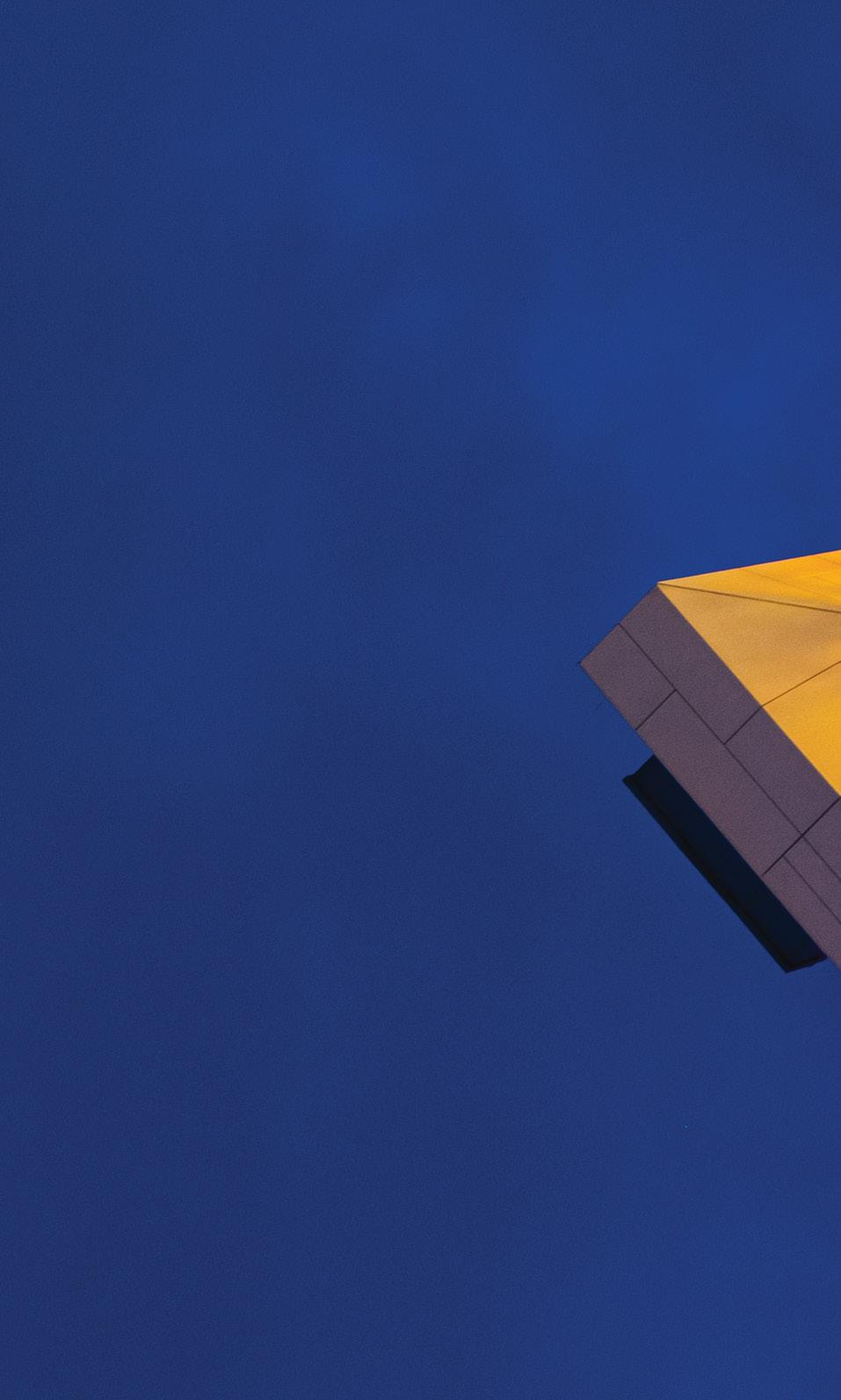Expanding Opportunities
MARYLAND APPLIED GRADUATE ENGINEERING ANNUAL REPORT 2022



Maryland Applied Graduate Engineering connects working engineers and technical professionals to the world-class faculty, facilities, and expertise of the A. James Clark School of Engineering. Our mission is to aid Maryland Engineering’s goal of being a leader in providing opportunities for lifelong learning and continuing education in the region, the nation, and beyond. Since 1994, we have been serving the engineering community and building a robust network of proud Maryland Engineering alumni.
The University of Maryland Master of Engineering and Graduate Certificate in Engineering programs are designed to help engineers advance their career and acquire the technical expertise they need in business, government, and industry.

This year was another stellar year for MAGE, thanks in large part to the continued support of the A. James Clark School of Engineering at the University of Maryland. From state-of-the -art facilities to world-class faculty leading the charge in cutting- edge engineering research, Maryland Engineering is one of the top engineering schools in the country. This year, the A. James Clark School of Engineering dedicated the E.A. Fernandez IDEA (Innovate, Design and Engineer for America) Factory, a $67 million 61,000 square foot facility that is home to over 20 new lab spaces, including the Angel P. Bezos ’69 Rapid Prototyping Lab, the Startup Shell, the Robotics and Autonomy Lab, and the Lockheed Martin Rotorcraft Labs. The E.A. Fernandez IDEA Factory’s most prominent feature is its stunning façade, featuring a multi-story window covered in a color-shifting film that presents varied, gorgeous views to the University of Maryland campus.
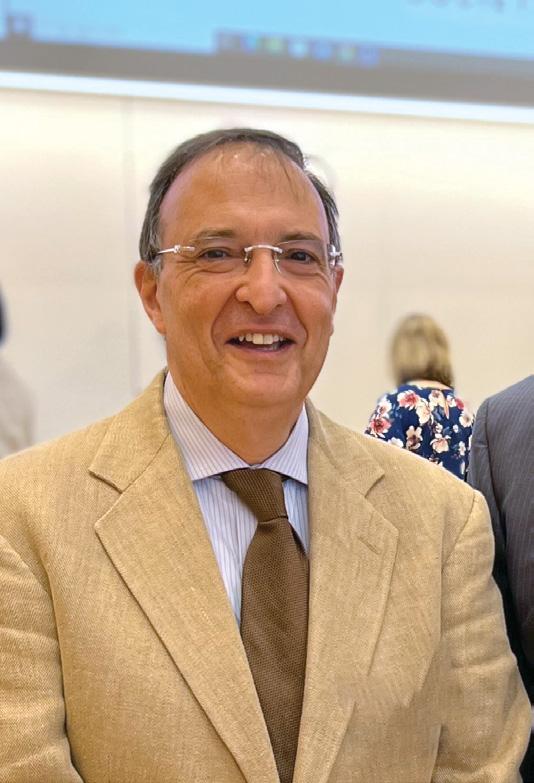 COVER IMAGE: THE E. A. FERNANDEZ IDEA FACTORY, BASED ON PHOTO BY STEPHANIE CORDLE
COVER IMAGE: THE E. A. FERNANDEZ IDEA FACTORY, BASED ON PHOTO BY STEPHANIE CORDLE
Also this year, Maryland Engineering announced a new $25 million commitment from University of Maryland alumnus Stanley R. Zupnik ’59 that will be used to construct a new engineering building focused on fostering collaboration between engineering disciplines. The new Stanley R. Zupnik Hall will house the Department of Civil and Environmental Engineering, and will include spaces for Mechanical Engineering, the Quantum Technology Center, and the Maryland Transportation Institute as well as the Center for Advanced Transportation Technology.
These new facilities, along with the almost 200 existing laboratories, research centers, inter-disciplinary partnerships, and multimedia learning spaces, offer unique opportunities to learn, innovate, and grow the field of engineering.
Beyond physical spaces on the University of Maryland campus, MAGE also continues to draw on the innovation and expertise of many University of Maryland departments, institutes, and centers to offer our Master of Engineering and Graduate Certificate in Engineering students a world class graduatelevel education.
With continued support from the University of Maryland, the A. James Clark School of Engineering, and departments, institutes, and centers across the University, MAGE has once again soared in the rankings. This year, MAGE’s online graduate engineering program ranked No. 12 in the nation, its highest ranking yet. This momentous achievement caps a continuous ascent of the leaderboard over the years.
I am so proud to continue to deliver, along with our enthusiastic MAGE staff and excellent faculty, the means of obtaining a high-value graduate engineering degree to dedicated, working engineers and technical professionals. Please join me in celebrating this year’s accomplishments, as well as the ongoing commitment and success of our faculty, staff, students, and alumni in the ensuing pages.
Dr. George Syrmos ASSISTANT DEAN FOR CONTINUING EDUCATION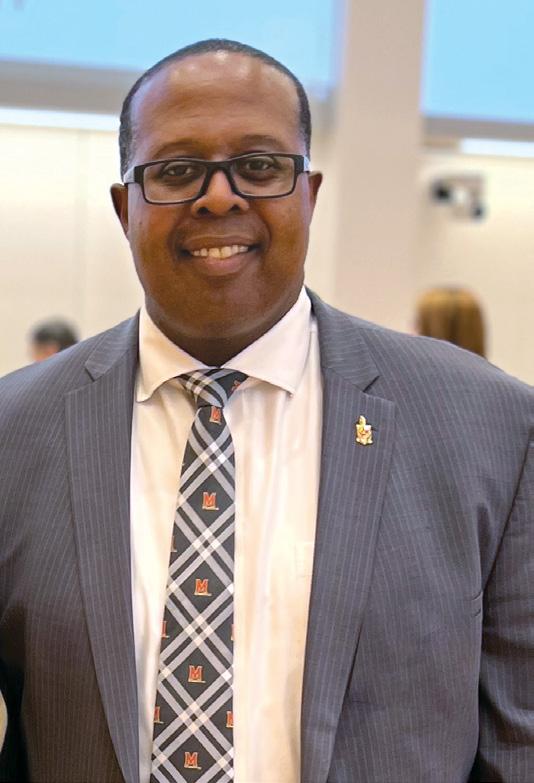

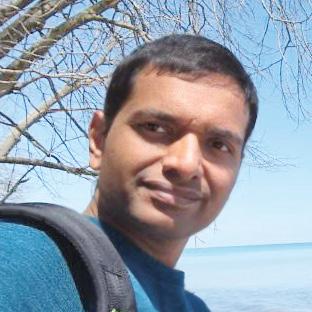
The A. James Clark School of Engineering at the University of Maryland rose to No. 12 among online graduate engineering programs in the U.S., according to rankings released on January 25, 2022 by U.S. News & World Report. This is the highest that the Clark School has been ranked in this category since first participating in 2014. In addition, the Clark School continued to rank in the top 20 (No. 17 in 2022 and No. 16 in 2021) among online engineering graduate programs for veterans.
The No. 12 ranking demonstrates a continuous ascent of the leaderboard over the years, with the Clark School ranked at No. 15 in 2021, No. 18 in 2020, and No. 20 in 2019.
Offered through Maryland Applied Graduate Engineering (MAGE), the online programs deliver Master of Engineering and Graduate Certificate in Engineering degrees of the same high quality as their on-campus counterparts: Bioengineering, Cybersecurity, Fire Protection Engineering, Project Management, Reliability Engineering, and Energy Systems Engineering. In 2021, MAGE added online programs in Software Engineering and Systems Engineering to keep up with industry demand.
Since 2019, the Clark School’s online programs have ranked in the top 20 amongst some of its finest peers in online engineering graduate education, showing a strong commitment to excellence in online learning. Proximity to our nation’s capital and a thriving technology corridor in the Washington, D.C. metro area opens doors to career connections not available to other online programs.
“The online program was also recommended by experts in the field to be effective with options to join live classes for full time employed remote students like me.”
KARTHIK PITCHAIMANI GCEN RELIABILITY
MAGE’s graduate online programs in cutting-edge engineering fields are designed to be flexible and address the needs of busy adult learners, whose schedules or locations do not allow on-campus study, while also as equally enriching and valuable as in-person programs.
“For more than 18 years, we have met the needs of working engineers and technical professionals by offering online engineering graduate programs that consider the specific needs of adult learners with career and family commitments,” says Dr. George Syrmos, Assistant Dean for Continuing Education. “This includes faculty trained in delivering online education, technology and accessibility support, and small class sizes.”
“We continue to add new and niche programs, such as our newest online offerings in Software Engineering and Systems Engineering, to address the demands of the global marketplace,” says Syrmos.

“The challenges that we face as a society, from climate change to biotechnology to computing power, are solved in large part by the work of engineers. MAGE is equipping engineers with the tools to address these challenges now and in the future.”
U.S. News rankings for online graduate engineering programs are based on factors including student engagement, faculty credentials, expert opinion of the program, student services and available technologies, and overall student excellence.
“Chemical Engineering has so much to offer. Being a field that touches almost every aspect of life, it has kept me enthused.”
CHIKA OKORO M.ENG. CHEMICAL & BIOMOLECULAR ENGINEERING
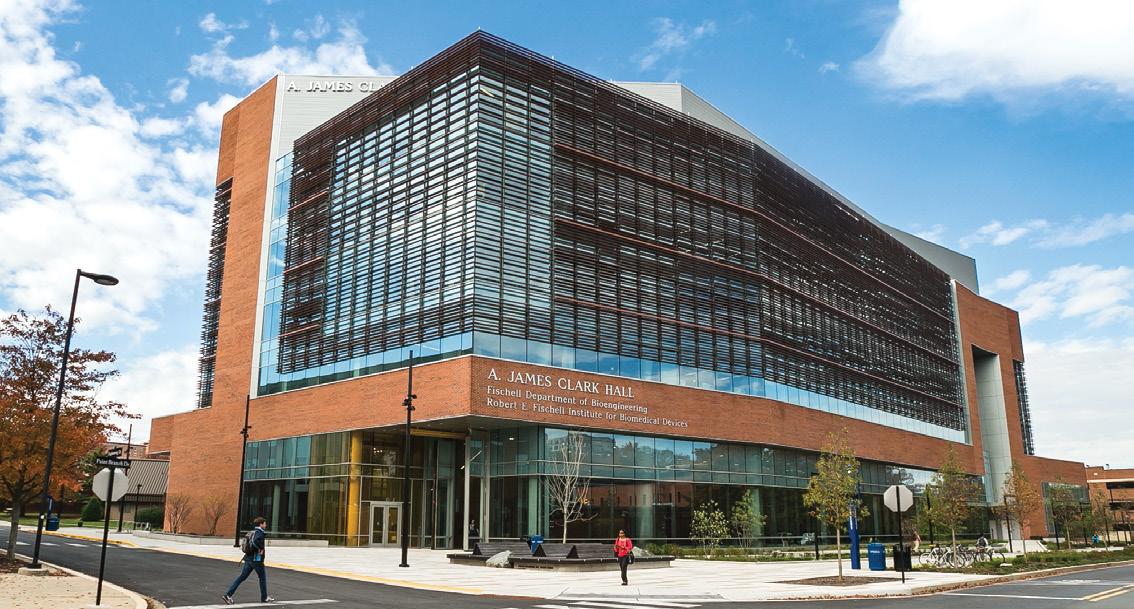
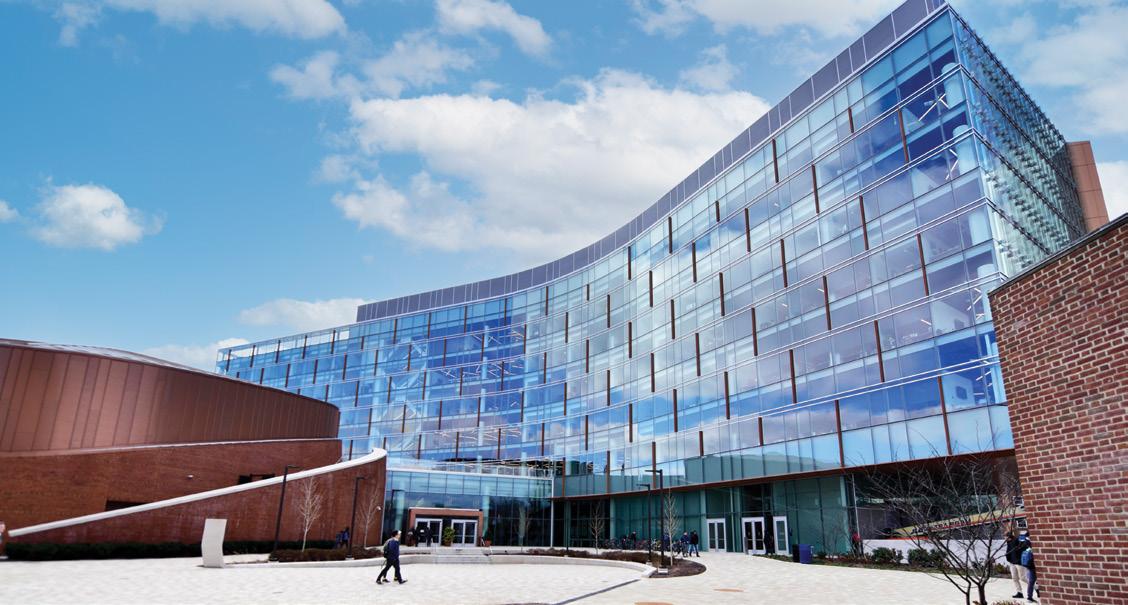
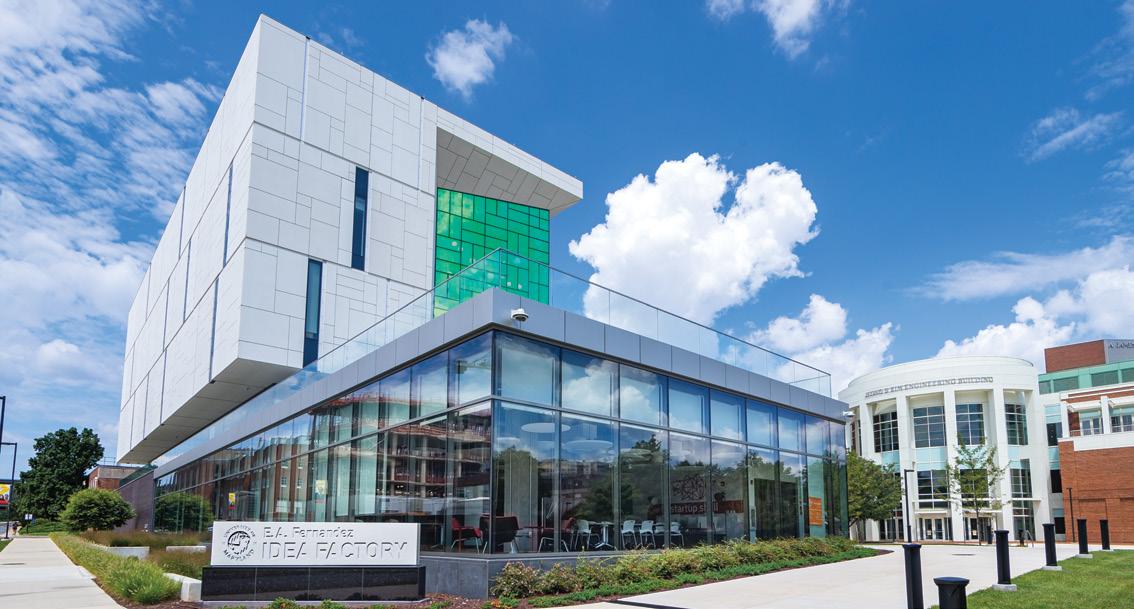
The E.A. Fernandez IDEA Factory (Innovate, Design and Engineer for America) is the newest engineering facility on the University of Maryland campus. Dedicated in May 2022, the E.A. Fernandez IDEA Factory “serves as a force multiplier for addressing society’s grand challenges, and promotes the values, skills and experiences that great problem-solvers need to do it: innovation, collaboration and creativity; entrepreneurship; and interdisciplinary design.”
On the 3rd floor of the E.A. Fernandez IDEA Factory is the Robotics and Autonomy Lab, a multifunctional space used for mobile robotics research, robotics prototyping and manufacturing, and optical inspection equipment that is available to MAGE students and faculty in the Robotics program.
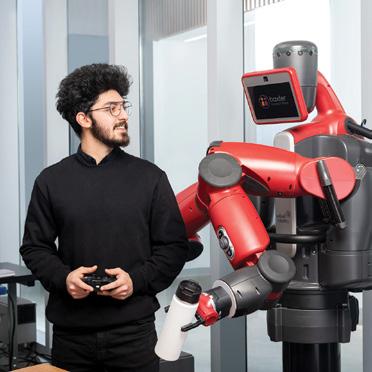
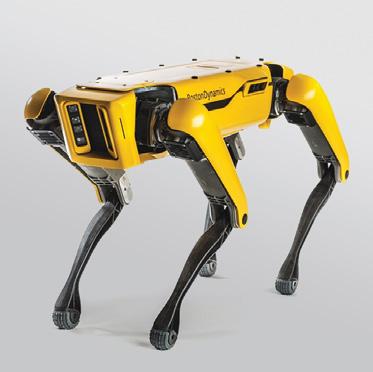
The Brendan Iribe Center for Computer Science and Engineering was dedicated in 2019 as “a hub for technology, collaboration and discovery at the heart of a new innovation district.”
It’s home of the Brin Family Aerial Robotics Lab, a 15 ft high, 430 sq.ft netted area for testing flying robots such as drones and quadcopters, as well as a Vicon motion capture system and workbench for support and maintenance.
Also located within the Iribe Center is the Robotics Manipulator Lab, which features several state-of-the-art manipulators and various interchangeable robotic grippers. These facilities are available to all Maryland Robotics Center affiliated students and faculty, including MAGE Robotics students and faculty.
A. James Clark Hall opened in 2017 with a mission to encourage interdisciplinary collaboration and growth, but much of the space is used to house the Fischell Department of Bioengineering and the Robert E. Fischell Institute for Biomedical Devices, and equipment such as laser devices and magnetic resonance imagers.
Much of the collaboration across engineering disciplines happens in Clark Hall’s Innovation Lab, where students have access to equipment used in digital fabrication, rapid prototyping, 3-D printing, optics, and bioinformatics.
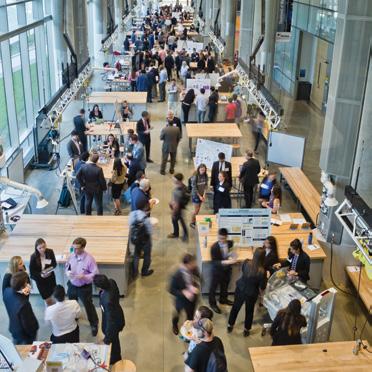
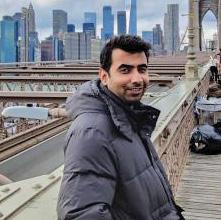
“Not only is UMD rich and diverse in cultures, it also has one of the best engineering programs in the world.”
■ Maryland State Highway Administration ■ Meta ■ NASA Goddard Space Flight Center ■ Northrop Grumman Corporation ■ Pepco Holdings, Inc. ■ Saudi Aramco ■ Siemens Corporation ■ Tesla Motors, Inc. ■ The Whiting-Turner Contracting Company ■ U.S. Navy ■ U.S. Army Corps of Engineers ■ U.S. Nuclear Regulatory Commissions 48% 7 MAGE ANNUAL REPORT 2022

Maryland Applied Graduate Engineering is pleased to announce Zeid Kootbally as the recipient of the MAGE Outstanding Teaching Award for the Academic Year 2021-2022.
Assistant Dean for Continuing Education George Syrmos presented the award to Kootbally on July 27, 2022 in the J.M. Patterson Building at the University of Maryland in recognition of his contributions to MAGE students in the form of his exceptional teaching. Kootbally received his Ph.D in Computer Science from the University of Burgundy, France, in 2008
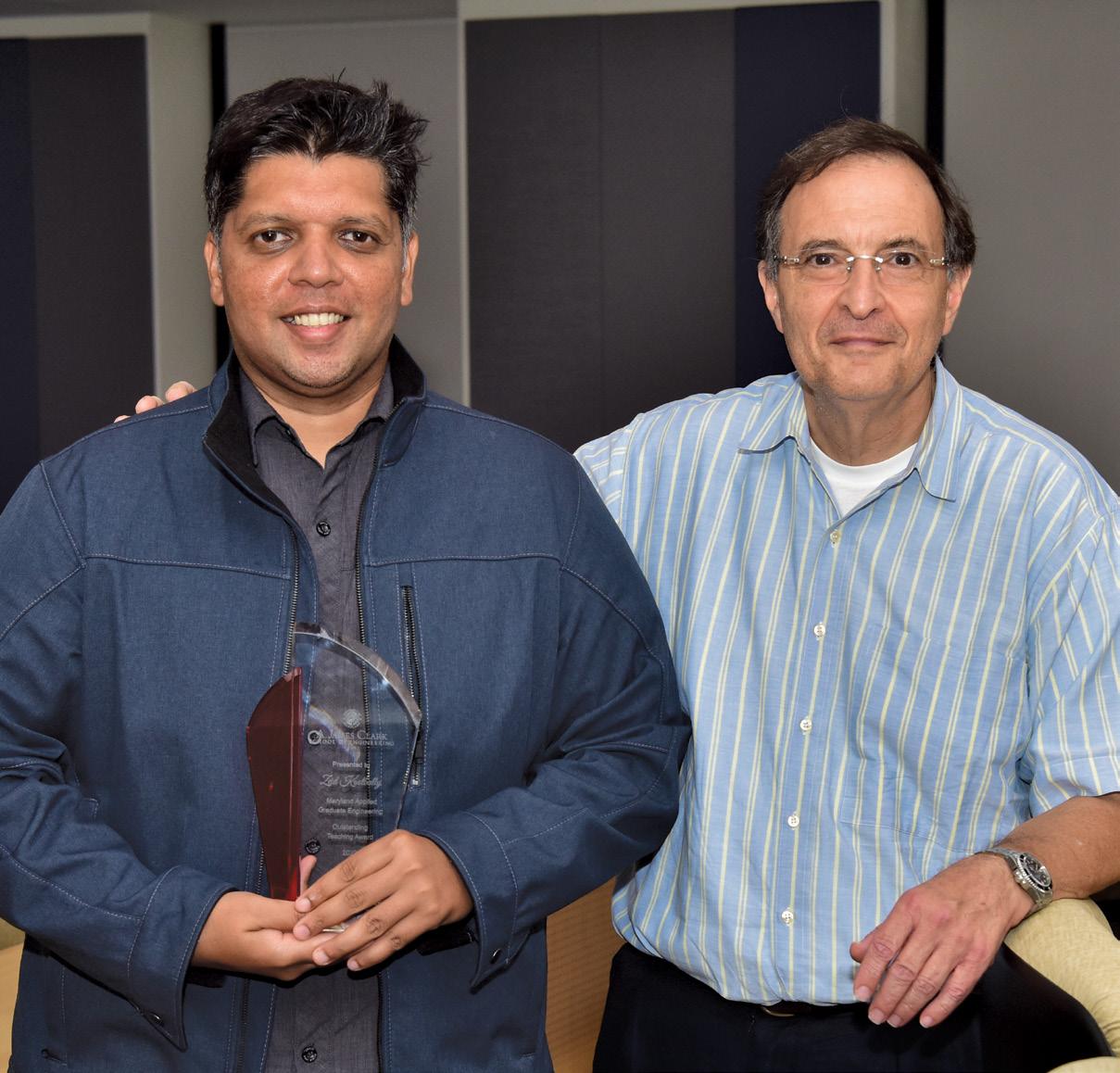
with his dissertation titled, “Moving Object Predictions in Dynamic Environments for Autonomous Ground Vehicles.” Outside of his teaching duties at MAGE, Kootbally is a Senior Research Associate with the Department of Aerospace and Mechanical Engineering at the University of Southern California (USC) and an Associate in the Intelligent Systems Division at the National Institute of Standards and Technology (NIST), where he recently accepted the NIST Distinguished Associate Award for “Developing an innovative simulation-based robot agility competition that has spurred breakthrough solutions to industry’s robotic challenges.” Kootbally’s current research interests are in automated robotic systems, specifically in the area of agile robotic systems. The goal of agile robotic systems is to make industrial robots smarter so they can be faster tasked/retasked and overcome unpredicted situations.
Kootbally began teaching with MAGE in 2018 when he was invited to co-teach ENPM663: Building a Manufacturing Robotic Software System (formerly known as ENPM809B) by Craig Schlenoff, who was also working at NIST.
“After seeing how much students could accomplish at the end of the first semester we taught the course, I decided to keep providing the necessary knowledge they will need in their careers,” Kootbally says.
Kootbally now teaches ENPM809E: Python Applications for Robotics and ENPM809Y: Introductory Robot Programming in addition to ENPM663, which all use Robot Operating System (ROS) and expand on building robot software. “ENPM809E teaches Python and its applications to mobile and industrial robotics using ROS. ENPM809Y teaches modern C++ and its
applications to mobile and industrial robotics using ROS. ENPM663 looks at the components of manufacturing robots, including architectures, planning/control, simulation, and measurement science. ENPM663 utilizes the Agile Robotics for Industrial Automation Competition (ARIAC), developed by NIST, as a use case. The final projects for these courses come in the form of a software which is run live at the end of the semesters.”
As for his students, Kootbally says, “I just hope the students see me as a teacher who cares about them.” He is attentive to their questions and any issues or concerns they have throughout the semester, noting that “MAGE students are very passionate and very respectful with a great desire to have real-world application experience.”
Student Chris Neil D Souza, who took ENPM809E with Kootbally in Summer 2022, certainly felt the consideration that Kootbally strove to give to each student, saying, “Professor Zeid is kind and amicable and is always ready to help us out.
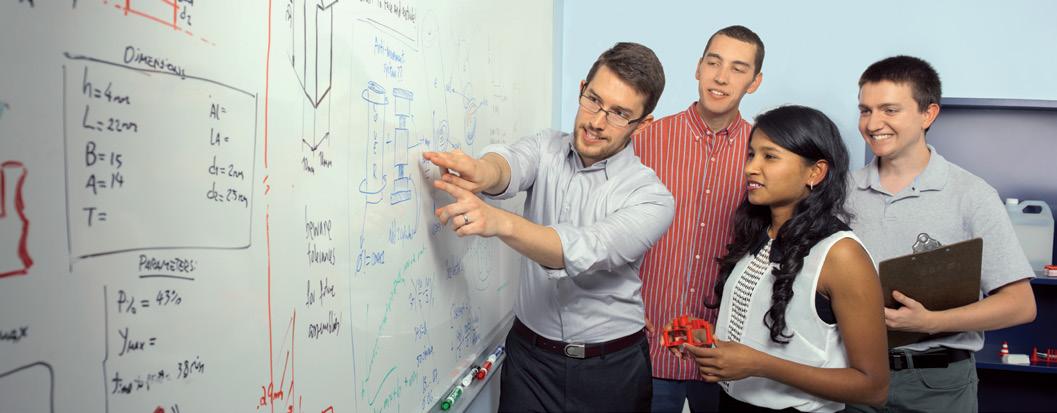
His classes are fun and easy to understand. My knowledge in robotics has widened after taking his class.”
Kootbally credits his teaching success, in part, to MAGE staff. “They provide great feedback, they are very responsive, and they always support both students and teachers. Whenever I promote MAGE programs I always mention the quality of the work the staff is providing,” he says.
For the future, Kootbally is looking forward to an exciting new autonomous robot project at NIST. On-road autonomous vehicles are expected to significantly influence key aspects of everyday life. However, these complex systems can pose a safety risk in the event of unexpected system performance. NIST is working on the development of standards and performance metrics to measure many aspects of autonomous vehicles.
As for teaching, he would love to incorporate some of the state-of-the-art robots available on-campus into his coursework since so much of his teaching relies on simulations and simulated robots.
INTERESTED IN TEACHING FOR MAGE OR SUPPORTING IN ANOTHER WAY?
eet the newest industry experts to join MAGE’s faculty. Their expertise and experience are imperative to MAGE’s continued success in bringing real-world examples, problems, and solutions to our curriculum which continues to evolve and adapt to industry changes.
United States Naval Academy, Mechanical Engineering & Naval Propulsion Labs
SUBJECT : Energy Systems Engineering
PROFILE: Dr. Cerza has spent 50 years in industry and academia. With the U.S. Navy laboratories, he has acted as scientist, engineer, program manager, and consultant to a variety of Navy programs. Dr. Cerza was also a Professor at Rutgers University, the U.S. Naval Academy, and Johns Hopkins University, and a Visiting Fellow at University of Oxford. Dr. Cerza has spent the last 3 years developing a prototype Gas Turbine – Organic Rankine Cycle Co-Generation Plant utilizing gas turbine waste heat exhaust energy for the U.S. Navy at USNA. Currently Dr. Cerza is active in the engineering communities as a manager, researcher, and teacher.
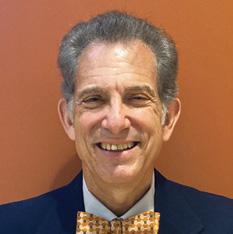
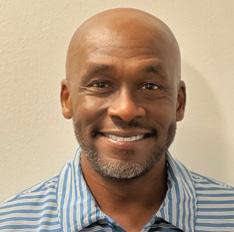
PROFILE: Kyosung Choo, Ph.D., is an Associate Professor of Mechanical Engineering at Youngstown State University. Prior to joining YSU, he served as a postdoctoral fellow in the Center for Environmental Energy Engineering at University of Maryland. He is a recipient of Outstanding Research Award from Brain Korea 21 in 2010 and Outstanding Academic Award from KAIST in 2011.
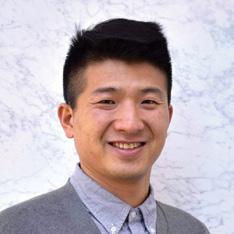
Everett
Platform Engineering at University of Maryland, DIT
SUBJECT: Cybersecurity
PROFILE: Daviage has over 30 years of experience in information technology. He leads a team responsible for engineering and support of cloud technologies including AWS, Azure, and the Google Cloud Platform. Daviage is also an experienced educator and serves as the campus liaison and administrator of the AWS Educate program.
Fraunhofer USA Center
Mid-Atlantic, Software Engineering Division
SUBJECT: Software Engineering
PROFILE: Dr. Giltinan received his PhD in Mechanical Engineering from Carnegie Mellon University in 2019 in the field of magnetic microscale robotics. He completed his research and post-doctoral experience at the Max Planck Institute for Intelligent Systems in Stuttgart, Germany. His research interests include machine learning systems, system networking, and microscale robotics.
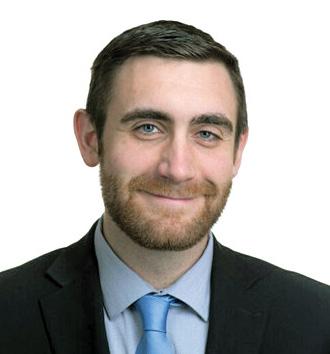
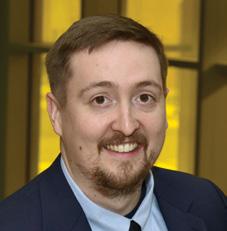
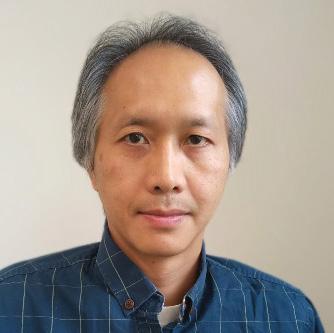
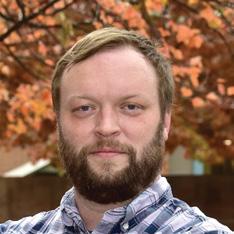
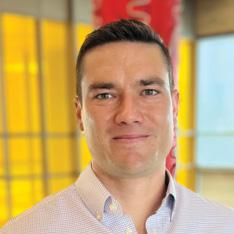
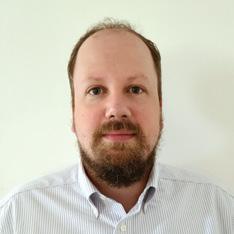
Kenneth Miltenberger
U.S. Coast Guard
SUBJECT: Cybersecurity
PROFILE: Kenneth (Kenny) Miltenberger is currently an instructor for ENPM691, Hacking of C programs and Unix Binaries. As his full time position, Miltenberger currently serves as Coast Guard Cyber Command’s (CGCYBER) Cyber Operational Assessments Branch Chief. He has worked on many other projects with the Coast Guard and was also a part time developer for the U.S. Navy.
Francis VangesselGovernment Research Scientist at Naval Surface Warfare Center
SUBJECT: Mechanical Engineering
PROFILE: Dr. Vangessel is a Mechanical Engineer for the Naval Surface Warfare Center Indian Head Division. His research projects involve the development and calibration of improved material models for energetic systems via Bayesian optimization, identifying novel energetic materials utilizing deep learningbased generative models, and accelerating energetic materials development by leveraging NLP techniques.
ANDREW STOTLER M.ENG. PROJECT MANAGEMENT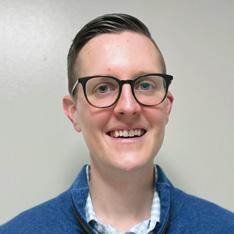
Daniel Apon
Cryptography Lead at MITRE
SUBJECT: Cybersecurity Tommy Chang Senior Robot Software Engineer at NASA
SUBJECT: Robotics
Robert Dean
IT Compliance and Assurance Coordinator at University of Maryland, DIT
SUBJECT: Cybersecurity
“Very applicable and flexible curriculum, small class sizes, and experienced faculty.”
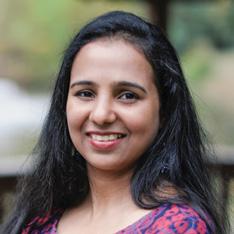
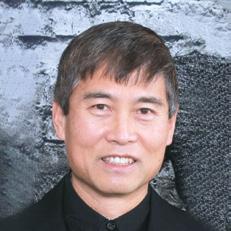
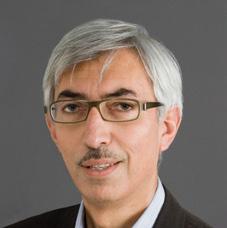
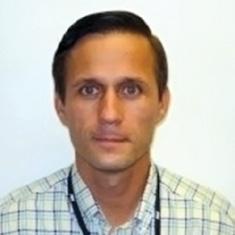
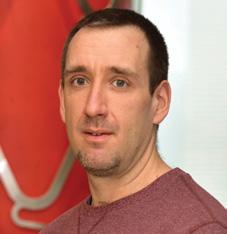
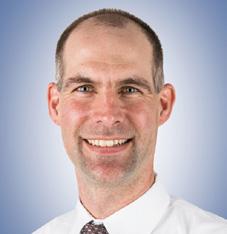

MAGE is committed to delivering quality engineering education, and that commitment is reflected in our dedicated and knowledgeable staff. One staff member whose contributions significantly elevate the value of a MAGE education is our instructional designer, Anne Bongermino.
Instructional designers work with Subject Matter Experts (SMEs) to create learning events such as courses, webinars, and microlearnings. Instructional designers use their knowledge of adult learning principles, pedagogy, and educational technology to translate the SME’s expertise into a meaningful learning experience for learners.
At MAGE, Bongermino consults with faculty on their course design, including ELMS/ Canvas training and support, guidance on pedagogy, and support during course redevelopment. One of her main responsibilities as instructional designer is to meet with new faculty prior to their first semester to assist them with ELMS, answer their questions, and provide them with teaching resources.
Bongermino studied Communications with a concentration in Instructional Technology at Ithaca College. In her junior year, she participated in an internship with the eLearning department at Clarkson Graduate School, which is where she developed a true appreciation for the field, learning about how instructional designers support faculty, exploring educational technologies, and developing design skills.
Throughout the semester, Bongermino provides outstanding, ongoing support to MAGE faculty, who she is especially appreciative to work with. “MAGE faculty are passionate about their subject matter and many currently work in the industries they teach to. They have their finger on the pulse of industry news and trends and bring that insight into their curricula,” she says.
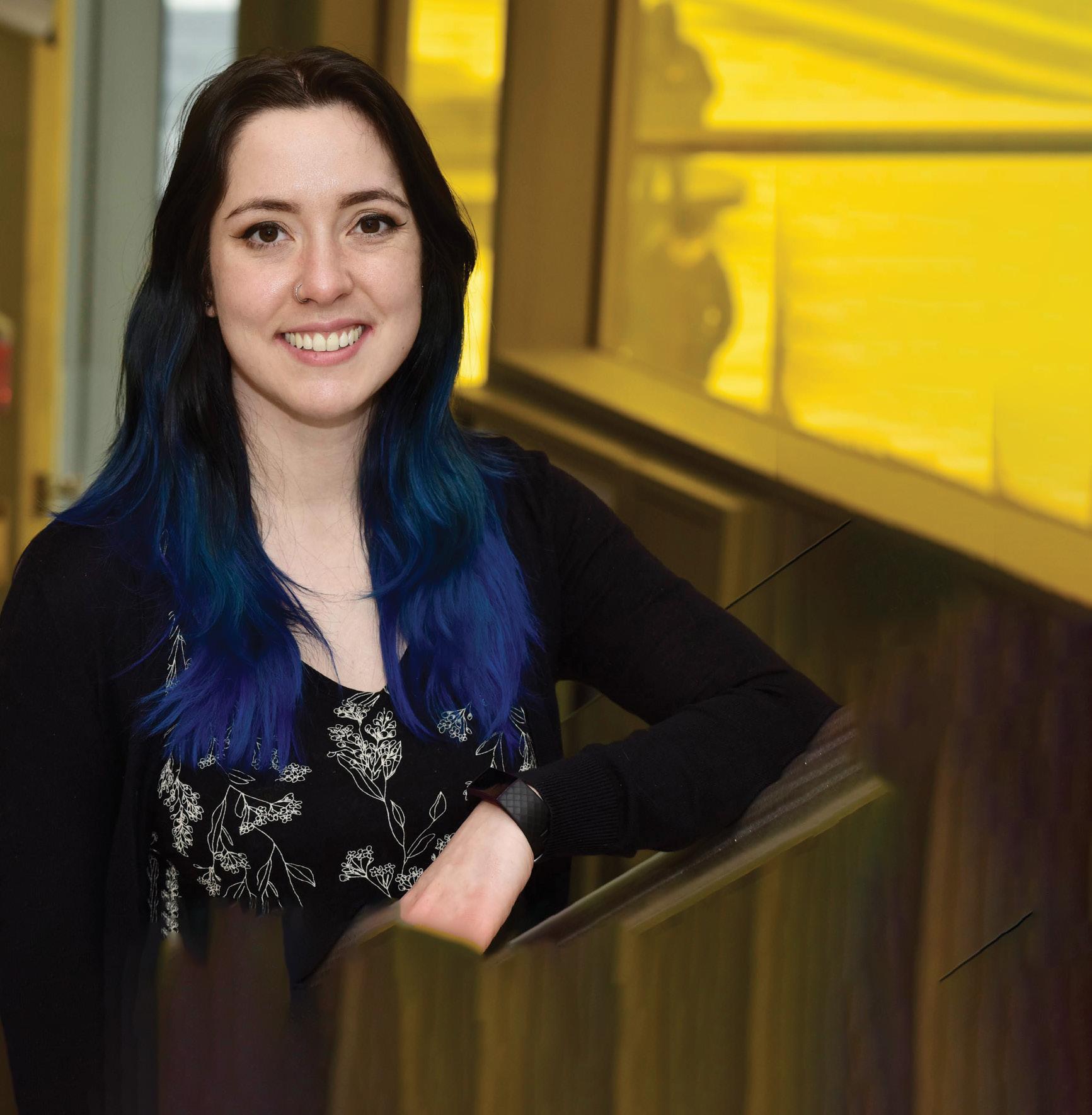
“I want to ensure that student voices are heard, and that faculty are given all of the tools they need to deliver quality instruction.”
“MAGE faculty are incredible experts in their fields, but the ability to translate that expertise into a course is a completely different skillset. That’s where instructional design comes in. In addition to supporting new faculty before and throughout their first semester, I review course evaluations at the end of each semester. I then make recommendations based on student feedback for future iterations of the course,” says Bongermino of the personalized support that she provides to MAGE faculty. “I want to ensure that student voices are heard, and that faculty are given all of the tools they need to deliver quality instruction.”
Looking to the future, Bongermino has great plans to further improve the handson faculty onboarding process to give instructors the tools they need to kickstart their first semester. On top of that, Bongermino is looking for ways to promote more active, hands-on learning, drawing on faculty projects and case studies to give students a chance to apply their new knowledge to real-world examples. Says Bongermino, “Not only is active learning pedagogically sound, we also know from course evaluations that students appreciate the opportunity to dig into course material in meaningful ways—we are an applied program after all!”
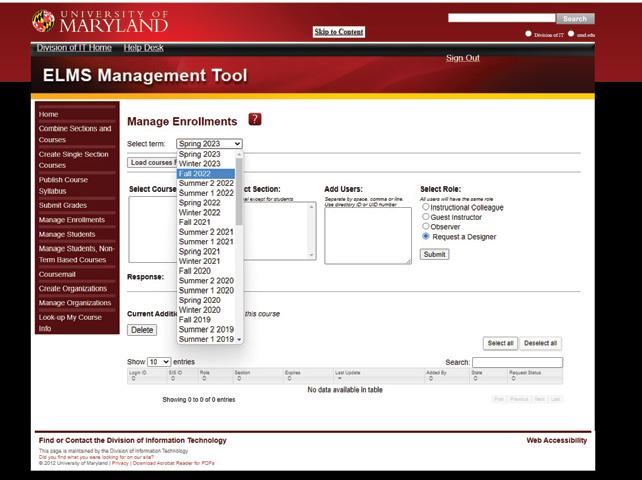
Earlier this year, Maryland Applied Graduate Engineering invited alumni in the Baltimore-Washington area out for a night of food, drinks, networking, raffle prizes, and golf fun at Topgolf in Oxon Hill, MD.
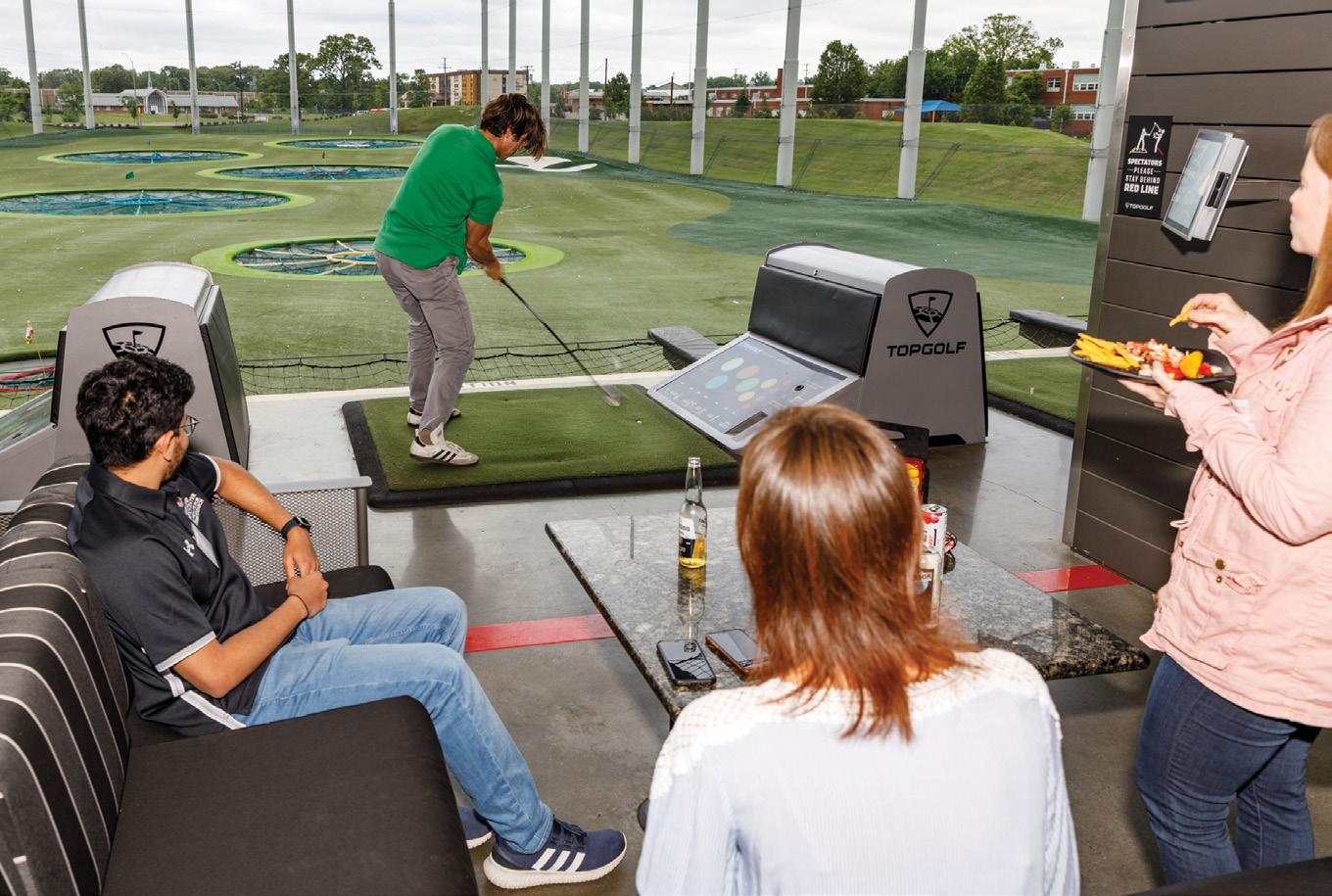
During the night, alumni had the chance to meet MAGE faculty and staff and play any of Topgolf’s over one dozen exciting games. Lucky raffle winners also walked away with prizes including University of Maryland gear.
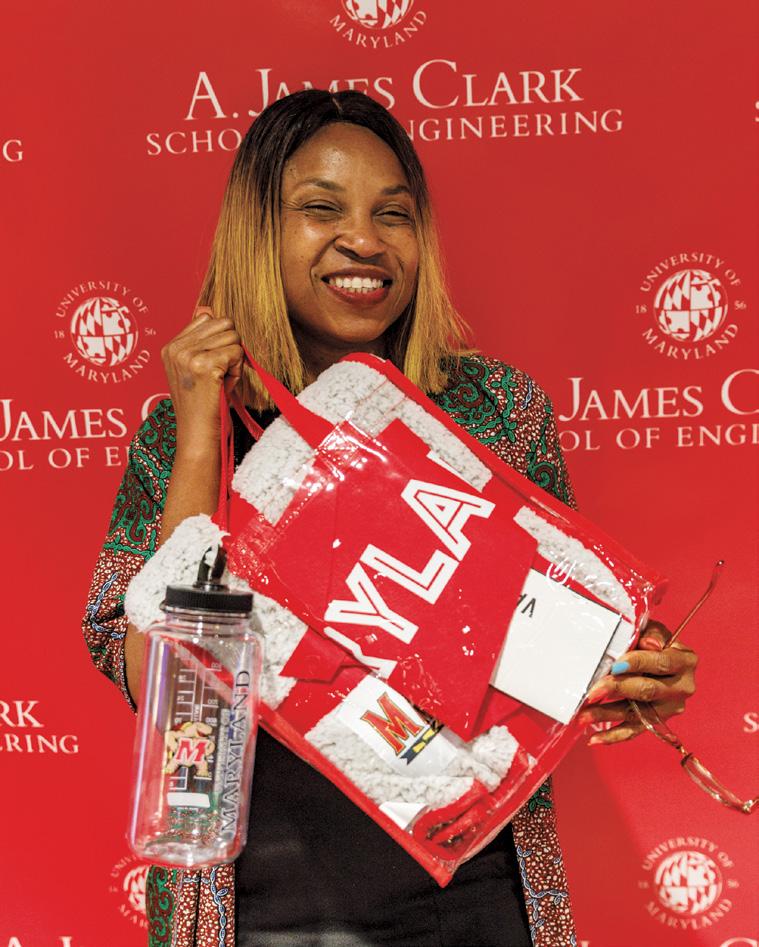
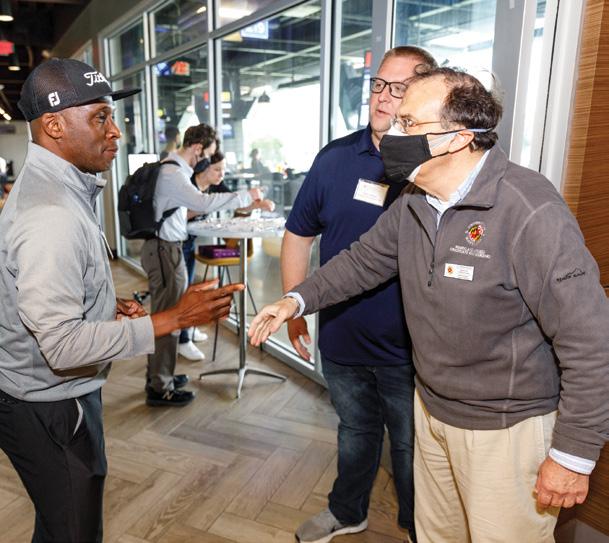
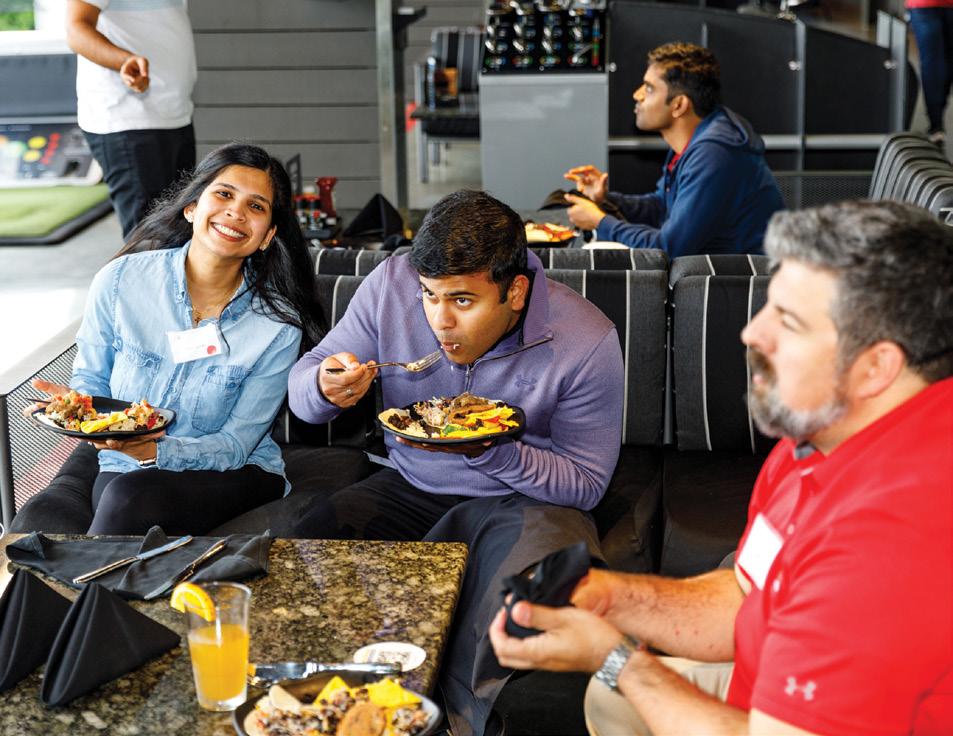
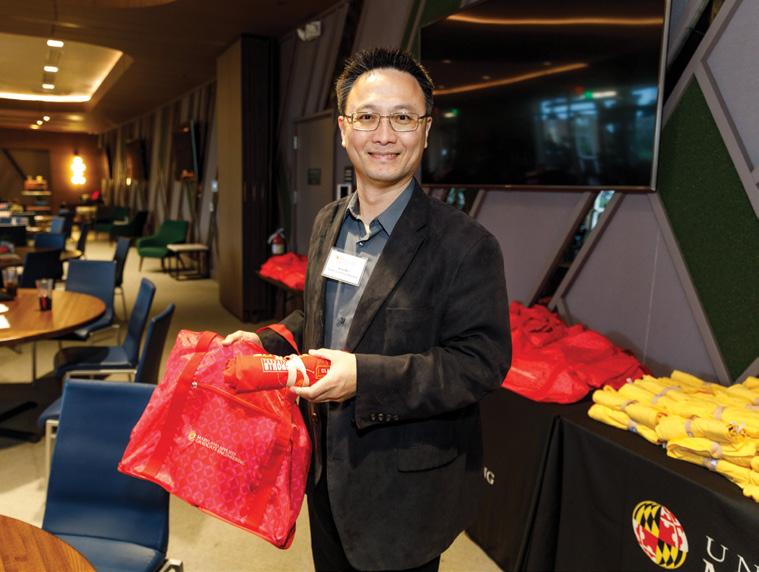
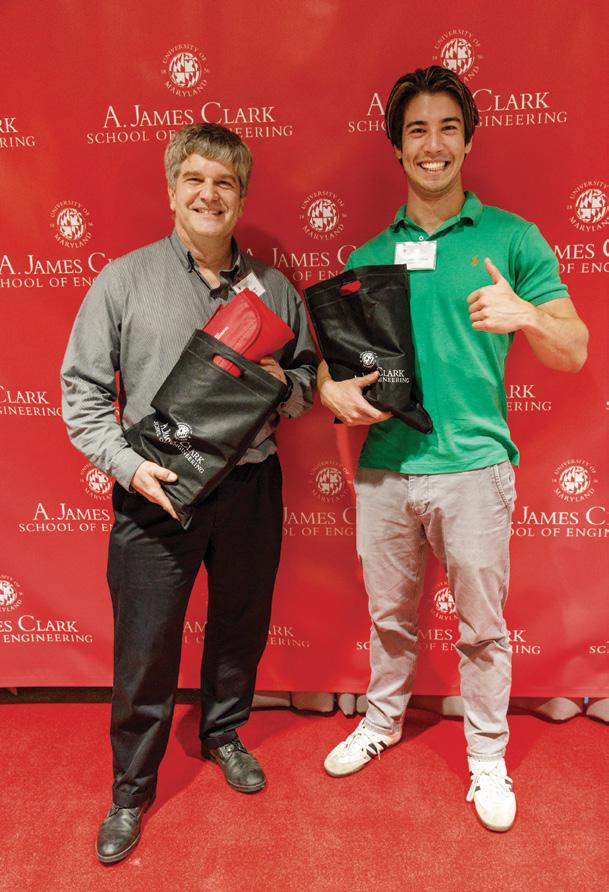
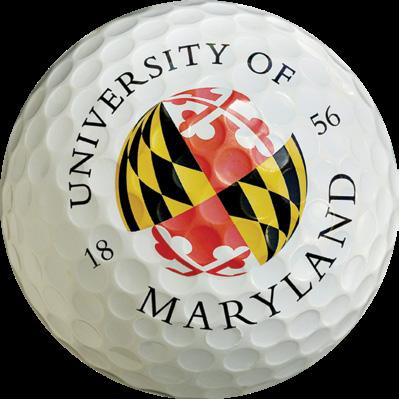
ADDITIVE MANUFACTURING
Santos, Nicole M.Eng. 202 1 Barron, Michael Z. GCEN 2022 Cuddington, Kenton R. GCEN 2021 Warner, Matthew GCEN 2021
AEROSPACE ENGINEERING
Eby, Ryan Louis M.Eng. 2022 Lepak, Jaad Brian M.Eng. 2022 Mulrenin, Connor Jacob M.Eng. 2022
BIOENGINEERING
Abdul Rahim, Ainul Wadhihah Binti M.Eng. 2022 Bruce, Nicole M.Eng. 2021 Burke, Quinton Francesco M.Eng. 2022 Chung, Hionu Anthony M.Eng. 2021 Defngin, Mauricio Defan M.Eng. 2022 Ecker, Joseph F M.Eng. 2022 Haryanto, Christian Anthony M.Eng. 2021 Kunkel, Kurt Robert M.Eng. 2022 Lee, Priscilla M.Eng. 2022 Makar, Rachel Lynn M.Eng. 2021 Price, Schuyler Emily Nelson M.Eng. 2021 Sahinci, Cemre M.Eng. 2022 Vieira, Randy Paul M.Eng. 2022 Dalrymple, Anita GCEN 2022 McKann, Mark David GCEN 2022
CHEMICAL AND BIOMOLECULAR ENGINEERING
Okoro, Chika Nkem M.Eng. 2022 Patel, Kishankumar Rakeshkumar M.Eng. 2021
CIVIL AND ENVIRONMENTAL ENGINEERING
Dobariya, Yash Lalitbhai M.Eng. 2022 Flores, Cesar Ernesto M.Eng. 2021 Forouzan Nia, Fariborz M.Eng. 2021
Acuna, Jorge M.Eng. 2021
Ahmed Fahmi Abdelati, Omar M.Eng. 2021
Altvater, Brandon James M.Eng. 2022
Au, Mason Duc M.Eng. 2021
Awosusi, David Ayotunde M.Eng. 2022
Ba-Aqail, Mohammed Ahmed Omar M.Eng. 2022
Bandara, Anuranga Rajapaksa M.Eng. 2022
Barker, Megan Christine M.Eng. 2022
Basior, Gregory Isaac M.Eng. 2021
Bizup, Daniel Anthony M.Eng. 2022
Capellan, Kingberli Stephanie M.Eng. 2021 Chaire, Luis M.Eng. 2021 Cheung, Winry M.Eng. 2021
Desai, Neeraj Jawahar M.Eng. 2022
Fournier, Brook M.Eng. 2022
Graves, James M.Eng. 2021
Hannon, Cory Shane M.Eng. 2022 Howard, Paul M.Eng. 2022
Joshi, Arpit M.Eng. 2021
Koneru, Supraja M.Eng. 2022
Kovalev, Alexandr M.Eng. 2022
Lartigue, Jeremy Marc Pierre M.Eng. 2021
Long, Logan John M.Eng. 2022
Marri, Rahul M.Eng. 2021 Matthius, Matthew Robert M.Eng. 2021
Milicevic, Lazar M.Eng. 2021 Mistry, Akshay Mahendrakumar M.Eng. 2021 Mukam, Kevin Ngondiep M.Eng. 2021 Ng, James Ming Hei M.Eng. 2022 Nguyen, Khoa Le Tue M.Eng. 2022 Panyam, Sreekanth Reddy M.Eng. 2021 Parikh, Meghavi Paresh M.Eng. 2021 Patel, Jay Jagadishkumar M.Eng. 2022 Patel, Parthkumar H. M.Eng. 2021 Perkins, Brandon Thomas M.Eng. 2022 Purswani, Milind Sunilbhai M.Eng. 2021
Quiroz, Maria Magdalena M.Eng. 2021 Rague, Bryan James M.Eng. 2021 Shah, Yash M.Eng. 2022 Smith, Brett Michael M.Eng. 2022 Smits, Daniel Paul M.Eng. 2021 Suryadinata, Ardya M.Eng. 2022 Thota, Laxmi Srinivas M.Eng. 2021 Varanasi, Sriram Venkata M.Eng. 2021 Wisniewski, Brian Scott M.Eng. 2022
Wittner, Michael Andrew M.Eng. 2021 Yadav, Milan M.Eng. 2021 Baur, Mireya GCEN 2022
Parent, Jordan Riley GCEN 2022 Umoren, Ekemini Emmanuel GCEN 2021
Betelle, Habtamu A M.Eng. 2021 Garcia Beltran, Pablo M.Eng. 2022 Hmung, David Lianlal M.Eng. 2022 Pramanik, Souvik M.Eng. 2022 Umoren, Ekemini Emmanuel M.Eng. 2021 Wilmoth, Ian Hanshaw M.Eng. 2021
Garcia-Rivera, Eduardo Gabriel GCEN 2021 Siebenhuhner, Matthew James GCEN 2022
Akineplu, Oluwaferanmi Kolade M.Eng. 2022 Anindu, Lukman M.Eng. 2021 Anirudhan, Nithya M.Eng. 2022 Estribi Quintero, Juan Jose M.Eng. 2022 Houser, Michael Allen M.Eng. 2022 Olsen, Christopher Michael M.Eng. 2021 Taylor, Joseph Wells M.Eng. 2021 Tsikata, Selorm Kwame M.Eng. 2021 Houser, Michael Allen GCEN 2021
ENVIRONMENTAL ENGINEERING
Herrera, Heidi M.Eng. 2022 Summers, Kelly Nicole M.Eng. 2021
FIRE PROTECTION ENGINEERING
Chen, Christopher Siwei M.Eng. 2021 Chew, Ai Vui M.Eng. 2021 Dalla Vecchia, Ryan Paul M.Eng. 2022 Dunne, Steven John M.Eng. 2022 Evans, Jessica Amanda M.Eng. 2021 Hatten, Zachary M.Eng. 2021 Jalani, Muhammad Hashim M.Eng. 2021 Kurtenbach, Kinsey L M.Eng. 2021 LeBlanc, Patrick M.Eng. 2021 Maleki, Roozbeh M.Eng. 2021 Muehlberger, Gabriela Simone M.Eng. 2022 Parkerson, James Blaine M.Eng. 2021 Soylu, Sina M.Eng. 2022 Surman, Timothy Nicholas M.Eng. 2022 Weston-Dawkes, Matthew M.Eng. 2022
Fleischer, Jason Tyler M.Eng. 2021 Banks, Olivia K GCEN 2022
Barron, Michael Z. M.Eng. 2022 Bhatia, Bunty M.Eng. 2021 Bode, Steven Hancock M.Eng. 2021 Cao, Yubo M.Eng. 2021 Cuddington, Kenton R M.Eng. 2021 Ferdowsian, Espanta M.Eng. 2021 Garcia-Rivera, Eduardo Gabriel M.Eng. 2021 Mauriello, Thomas M.Eng. 2022 Padher, Inderbir Singh M.Eng. 2022 Phillips, Jackson Edward M.Eng. 2022 Schwartz, Katherine Rose M.Eng. 2022 Tekle, Abel M.Eng. 2022 Wang, Yuanwen M.Eng. 2022 Warner, Matthew M.Eng. 2021 Stevens, David Arthur GCEN 2022 Taylor, Joseph GCEN 2021
Binner, Joshua Robert M.Eng. 2021 Dunn, Elizabeth Anne M.Eng. 2022 Jin, Zhefen M.Eng. 2021 Kastner, Teresa Kathleen M.Eng. 2021 Lenoir Cestelos, Paul M.Eng. 2021 Mapagunarathne, Mapa Chethiya M.Eng. 2021 McInnis, Bonnie Marie M.Eng. 2022 Mohammed, Hareesa M.Eng. 2022 Montezzo Coelho, Mateus M.Eng. 2021 Mora Restrepo, Erika Tatiana M.Eng. 2021 Ramoutar, Gerard M.Eng. 2022 Richardson, Matthew J M.Eng. 2022 San, Phyo Myat M.Eng. 2021 Siebold, Matthew Neal M.Eng. 2021 Sow, Mohamed M.Eng. 2022 Patel, Khush GCEN 2022 Wilson, Joseph Stafford GCEN 2021
Dalrymple, Anita Marie M.Eng. 2022 Epp Schmidt, Tristan Thomas M.Eng. 2022 Forero Rodriguez, Daniela M.Eng. 2022 Watts, Natalie Allison M.Eng. 2021 Zanetti, Luke M.Eng. 2022 Barnes, Alexander Edward GCEN 2021 Shellenberger, Jack C GCEN 2022
Ayyagari, Vasista M.Eng. 2021 Barret, Loic Christopher M.Eng. 2021
Bhamidipati, Sai Praveen M.Eng. 2021
Bueno, Cristian Alejandro M.Eng. 2022 Cortes, Shon Byron M.Eng. 2022 Filie, Alexandre Carlos Dizaro M.Eng. 2022 Garg, Divyam M.Eng. 2021 Jackson, Derrick M.Eng. 2021 Jacob, Markose M.Eng. 2021 Jain, Vaibhav M.Eng. 2022 Jayashankar, Jayesh M.Eng. 2022 Kabra, Pooja Manoj M.Eng. 2022 Kesani, Santosh Ajay Teja M.Eng. 2021 Kim, Hae Lee M.Eng. 2021 Lerner, Daniel M.Eng. 2021 McGeoghegan, Jack Elliott M.Eng. 2021 Namala, Hari Krishna Prannoy M.Eng. 2022 Paras, Anubhav M.Eng. 2021 Parikh, Preyash Rajeshkumar M.Eng. 2021 Parwekar, Ajinkya Abhay M.Eng. 2021 Paul, Moumita M.Eng. 2021 Perez-Vicente, Rodrigo De Lazcano M.Eng. 2022 Prabhakaran, Ashwin Kumar M.Eng. 2021 Reynolds, Daniel Joseph M.Eng. 2021 Savnani, Paras Sunil M.Eng. 2022 Sayegh, Ramzi Kevin M.Eng. 2021 Sharma, Charu M.Eng. 2022 Sullivan, Thomas Michael M.Eng. 2021 Sutradhar, Karan M.Eng. 2021 Titus, Michael Grant M.Eng. 2021 Cheng, Justin Sinclair GCEN 2022 Lepak, Jaad Brian GCEN 2022 Makinde, Omololu Opeyemi GCEN 2022
Baur, Mireya Arredondo M.Eng. 2022 Gupta, Stuti M.Eng. 2021 Kalidindi Chaitanya, Sathwika Varma M.Eng. 2021 Ma, William M.Eng. 2022 Nadagouda, Abijitha M.Eng. 2021 Wadhwani, Nikita M.Eng. 2021 Wu, Ming-Lun M.Eng. 2022
Bixler, Justin Ryan M.Eng. 2021 Chowdhury, Ridwan M.Eng. 2021 Patel, Chand M.Eng. 2021 Patel, Khush M.Eng. 2022 Strong, Sheila Katherine M.Eng. 2022 Wilson, Joseph Stafford M.Eng. 2021
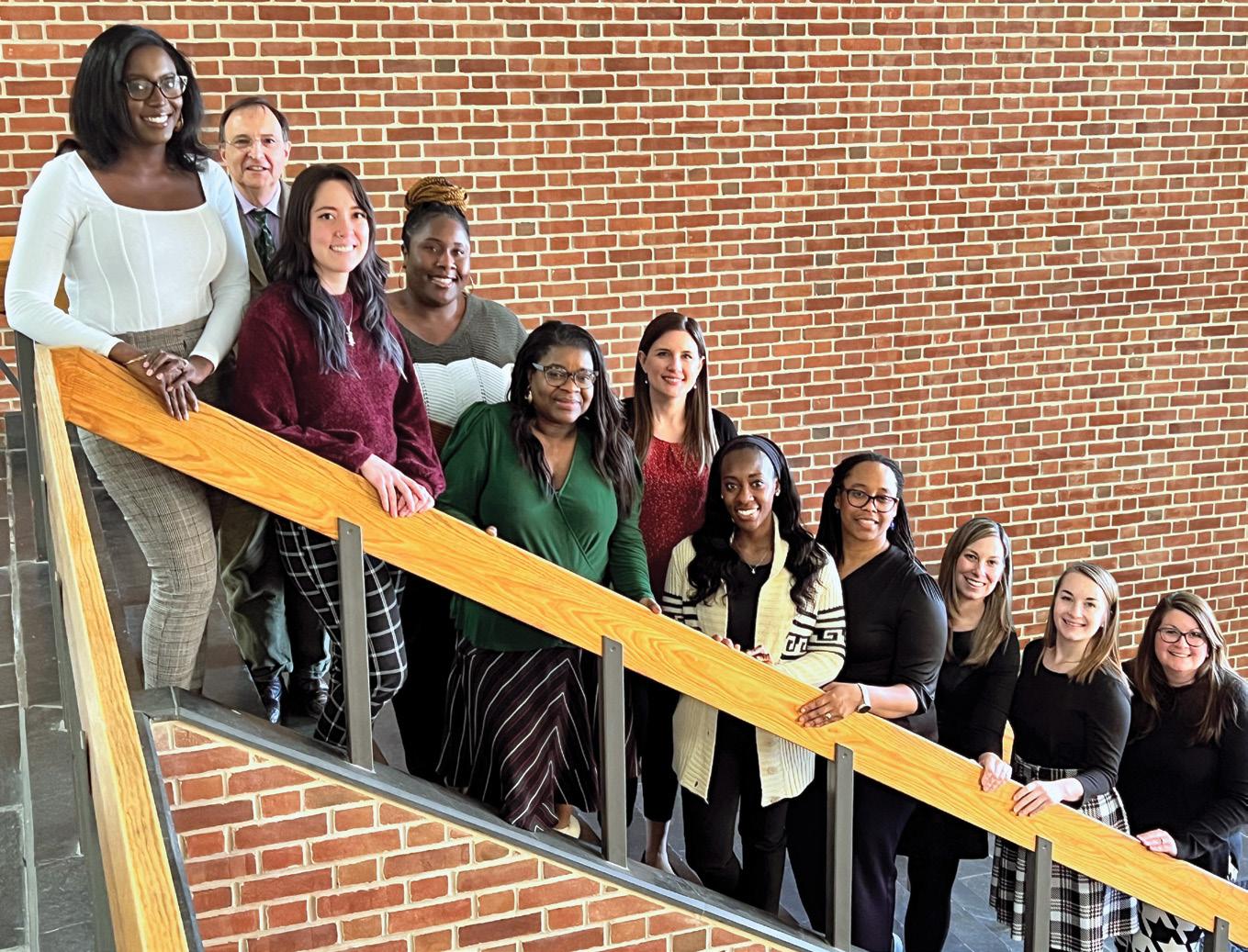 FROM LEFT TO RIGHT: AHMAL ALEXANDRA COLEMAN, GEORGE SYRMOS, ANNE BONGERMINO, CANITRIA COOK, VINETTE BROWN-DARLINGTON, SONJA DIETRICH, STEPHANIE ELCOCK, CIARA DIAZ, HEATHER MARKLE, CAITLIN GOVER, AND MELANIE TAMBURELLO
FROM LEFT TO RIGHT: AHMAL ALEXANDRA COLEMAN, GEORGE SYRMOS, ANNE BONGERMINO, CANITRIA COOK, VINETTE BROWN-DARLINGTON, SONJA DIETRICH, STEPHANIE ELCOCK, CIARA DIAZ, HEATHER MARKLE, CAITLIN GOVER, AND MELANIE TAMBURELLO
2105 J.M. PATTERSON BUILDING 4356 STADIUM DRIVE UNIVERSITY OF MARYLAND COLLEGE PARK, MD 20742

